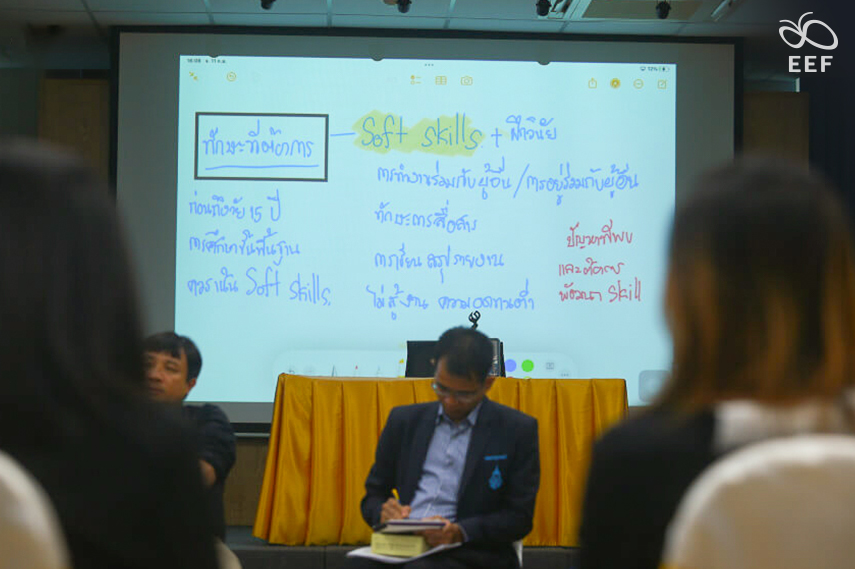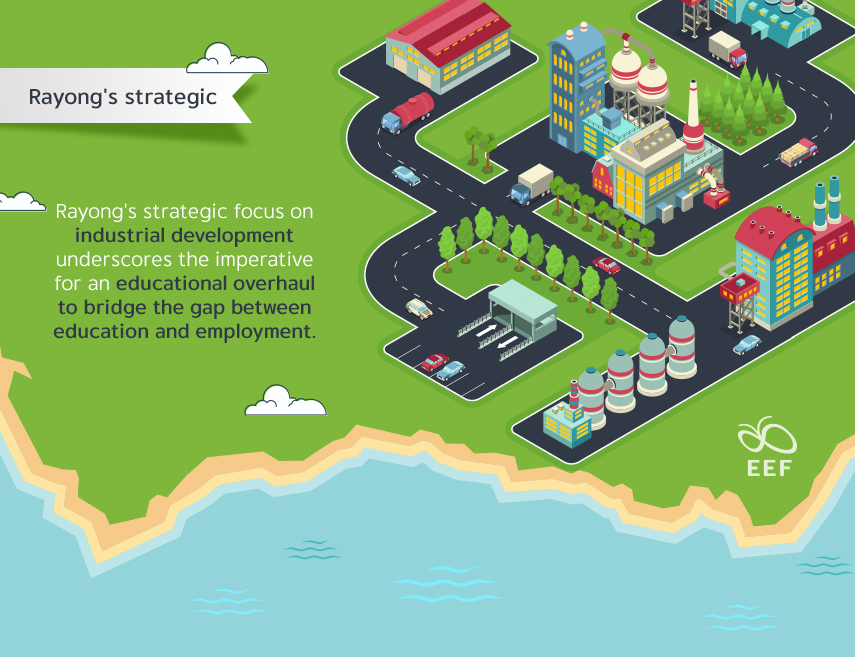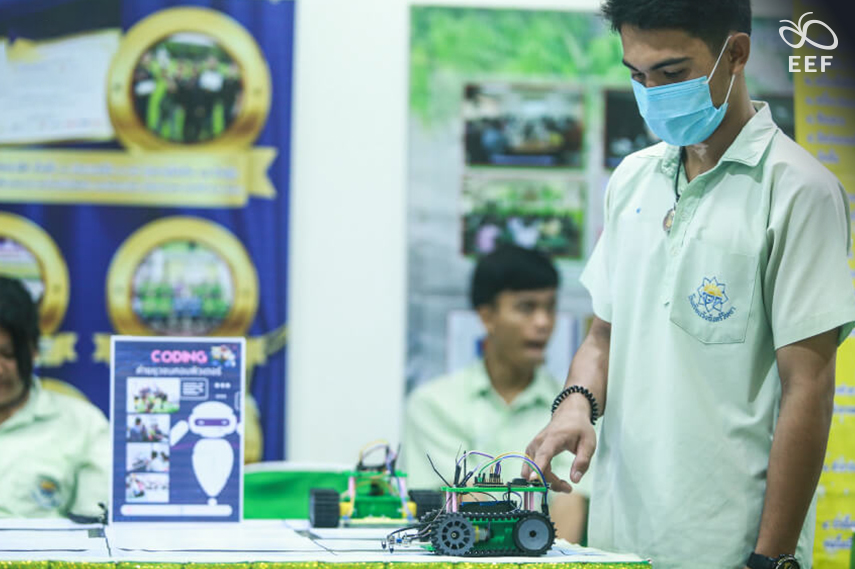
The initiation of the “Empowering Rayong for Global Success” initiative signifies the outset of provincial-level collaborative efforts aimed at fostering synergy to synthesize data, devise effective learning promotion strategies, and advocate for the implementation of the Equitable Education Fund (EEF) Thailand’s “Area-Based Education (ABE)” policy across Rayong Province. Spearheaded by the Rayong Inclusive Learning Academy (RILA), the local ABE initiatives adopt a two-pronged approach: addressing educational disparities by breaking them down into manageable local units while simultaneously paving the way for the province’s citizens to embrace global citizenship. Through the cultivation of international foundational skills, individuals are empowered to navigate the complexities of the contemporary world with self-reliance and confidence.

In the present-day rapidly changing context, certain occupational skills risk becoming obsolete, while others become essential for thriving amidst constant transformation. Beyond specialized occupational skills, there is a pressing need to fortify individuals with 21st-century foundational skills, vital for navigating uncertainties and capitalizing on emerging opportunities. Skills such as comprehension, data management, digital literacy, and emotional intelligence serve as invaluable tools, granting not only access to new avenues but also resilience against disruptive technological shifts. In the face of potential professional displacement, the keys to market relevance and desirability lie in adaptability and a commitment to lifelong learning, empowering individuals to secure lucrative and meaningful employment and spearhead innovation, thus ensuring their self-reliance in an ever-evolving landscape.

Rayong’s strategic focus on industrial development underscores the imperative for an educational overhaul to bridge the gap between education and employment. — or more precisely, skill development and industry needs. As automation renders mass labor obsolete, shifting the labor paradigm towards machine-centric work, indispensable becomes a nuanced workforce equipped with a blend of understanding, skills, competencies, and expertise necessary to navigate in an era of technological advancement. To meet this demand, the provincial industrial council has laid out plans to collaborate with educational institutions, ushering in a dual educational system where students can acquire theoretical knowledge alongside practical industry experience in relevant industries. This symbiotic approach aims to churn out adept graduates, rectifying the gap between the supply of labor and the demands of the industrial sector.
In charting Rayong’s trajectory towards global recognition, its local educational management pivots on promoting linguistic diversity and ensuring equitable access to educational institutions. Renowned for its tourism and industrial sectors, the province has been prioritizing global preparedness, starting with language proficiency. Language centers established within schools, offering English, Chinese, and Japanese, alongside other elective languages, empower students to pursue their passions and interests. This concerted effort has yielded commendable language proficiency among Rayong’s youth, evident in the results of national standardized tests like the O-NET. Equally crucial is comprehensive support within the educational system, with schools serving as inclusive hubs fostering academic excellence and personal growth. Achieving this necessitates teachers possessing holistic insights into students’ backgrounds to tailor education effectively. Meanwhile, flexible school regulations further guarantee equal educational opportunities, nurturing the potential of every child.
Rayong’s provincial educational management transcends mere school administration, encompassing the holistic development of individuals through collaborative efforts across various sectors. The provincial action plan focuses on reducing educational disparities, enhancing learning outcomes, decentralizing authority, and fostering collaborative mechanisms within the province. Recognizing that educational management extends beyond the confines of school walls, the initiative calls for the collective involvement of various stakeholders, be it the public, private, civil society, or local sector. Only through cohesive alignment among these policymakers, decision-makers, educators, and private enterprises can equitable access to opportunities be ensured, propelling Rayong toward sustainable growth and prosperity.

The concerted efforts undertaken within the Empowering Rayong for Global Success initiative — from the focus on bolstering 21st-century foundational skills to the collaborative endeavors between educational institutions and industrial sectors in Rayong Province — have yielded significant strides toward enhancing educational outcomes and preparing individuals for success in the global arena. By addressing educational disparities, promoting linguistic diversity, and fostering inclusive access to education, not only has Rayong strengthened its position on the global stage, but it has also contributed meaningfully to the national Area-based Education (ABE) initiative. By implementing innovative strategies to address educational disparities and promote inclusive access to education, Rayong serves as a shining example for other provinces looking to enhance their educational systems. Moreover, these efforts have served as a blueprint for the country’s educational system, showcasing the transformative potential of collaborative partnerships and innovative approaches in nurturing a skilled workforce ready to thrive in the complexities of the contemporary world. Through collective commitment and strategic investments in education, Rayong Province continues to pave the way for sustainable growth, prosperity, and global recognition on both the national and international stages.
Source: https://www.eef.or.th/article-031123/
Credit: Rawis Larha | Content and Writer Production Officer

